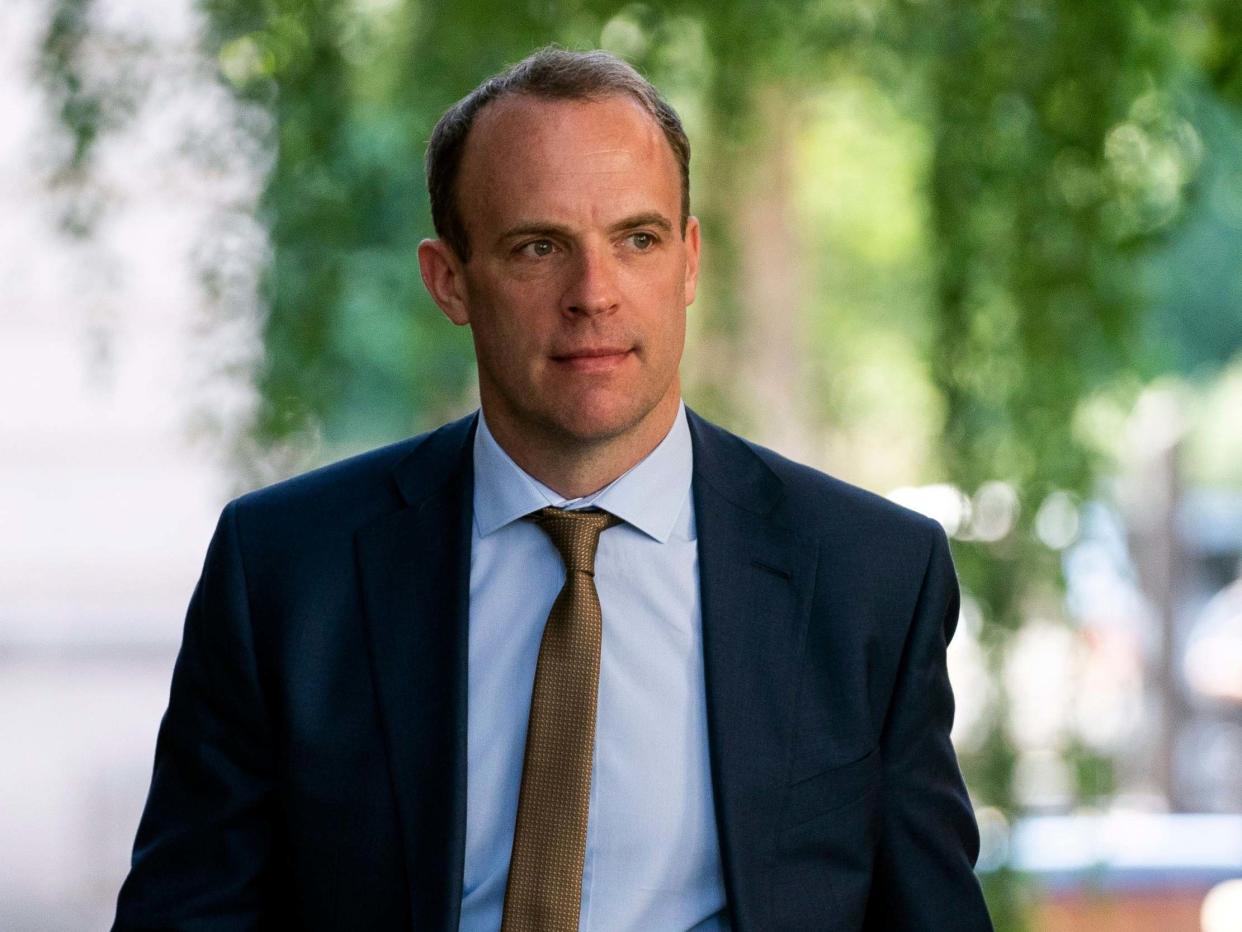If the single market is such a 'cracking deal' for Northern Ireland, then why aren't we all getting in on it, Dominic Raab?

Dominic Raab, our bullet-headed Foreign and Commonwealth Secretary, is a funny sort of chap to task with selling Boris Johnson’s hopelessly compromised Brexit deal. Not only does he have the kind of impatient zealotry of the true-believing Thatcherite, but he isn’t what you’d call consistent, despite the apparent attachment to Conservative free-market dogma. Frankly, I don't think he believes in the Johnson deal, and would rather have no deal if he could get away with it.
Raab tells us that, far from being a humiliating retreat back to a position once suggested by Michel Barmier, the Northern Ireland-only membership (de facto) of the EU customs union is going to be a “cracking deal” for Northern Ireland because it will keep “frictionless access to the single market”.
The obvious point arises as to why the UK can’t just keep “frictionless access to the single market”, if this is really such a “cracking” deal. Another awkward question is why devolved Scotland isn’t allowed to have the same special deal (after all, Scotland voted to remain in 2016, just as Northern Ireland did). Perhaps, before too long, the Johnson government will offer the same kind of deal to try and buy off Nicola Sturgeon and her second Scottish independence referendum. It might be enough, but Johnson won’t have much to show for his efforts in his secondarily role as Minister for the Union.
Cracking deal or not, this economic anomaly (and the trading advantages it offers the province) is certainly not why DUP are upset. It is the perceived threat to the union, which Raab also identified last time a deal was put before the Commons. Raab is also contradicting his own previous position on the sanctity of the union of Great Britain and Northern Ireland – our very own single market and customs union. When he resigned as the Brexit Secretary in November 2018, he wrote, referring to a very similar proposition from Theresa May:
“I cannot support the proposed deal for two reasons. First, I believe that the regulatory regime proposed for Northern Ireland presents a very real threat to the integrity of the United Kingdom.”
“Second, I cannot support an indefinite backstop arrangement, where the EU holds a veto over our ability to exit. The terms of the backstop amount to a hybrid of the EU Customs Union and Single Market obligations. No democratic nation ever signed up to be bound by such an extensive regime, imposed externally without any democratic control over the laws to be applied, nor the ability to decide to exit the arrangement.”
Earlier in Raab's brief tenure at the Department for Exiting the European Union, he made the same points more explicitly. Albeit marred by getting the Irish Sea muddled up with the Red Sea. He said: “We have made clear that we will do nothing that will draw a customs border down the Red Sea…” For the record, after some laughter, he added: “Can we also reassure that we have no plans for drawing a border down any other sea either.”
Well, no-one’s laughing now. It is indeed a matter of the trust that has been ruptured between there DUP and the Conservative and Unionist Party. After all the rhetoric about being part of the “unionist” family, about them being “our friends”, the rousing speech by Johnson to the DUP Conference, the expression of eternal loyalty from Jacob Rees-Mogg, and indeed Raab's principled resignation from government a year ago… Well, you can see how much they are worth now.
How long, I wonder, can the DUP-Conservative “confidence and supply” agreement last? Northern Ireland, but the rest of country too, are being sold out by the Tories for the single cause of preserving unity and strength of the Conservative Party and its continuance in government. As Johnson apparently said to the “Spartan” rebel Mark Francois, if they don’t get Brexit done by 31 October, the Tory party is “finished”.
If you believe that the British national interest is identical to the interest of the Conservative Party, which they do, then you cannot logically put party before country, and nothing else matters. If you, as Johnson or Raab do, believe that your interests are identical to those of your party, and thus the country, then the convergence of personal ambition and patriotism is complete, and no moral dilemmas can ever arise.
I don’t blame them for it: it is what they always do, and they’re usually ruthless and pretty good at it. The wonder is that anyone ever trusts any Tory, because flip-flopper Raab just like the rest of them.

 Yahoo News
Yahoo News 
